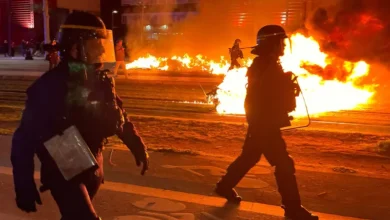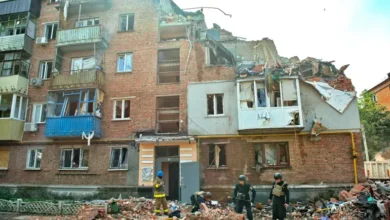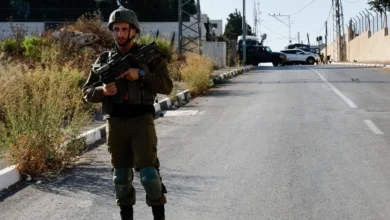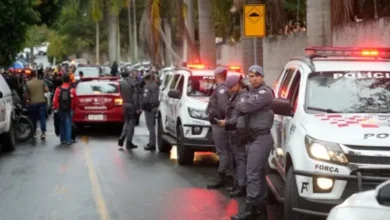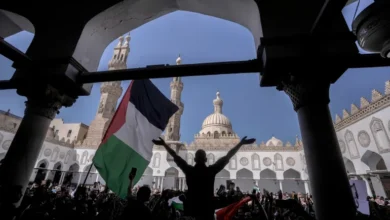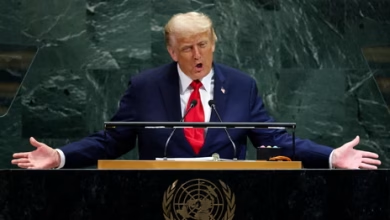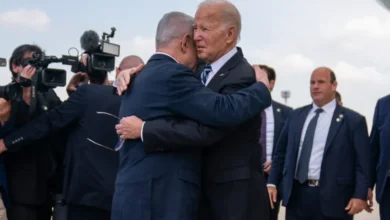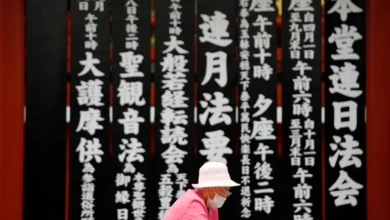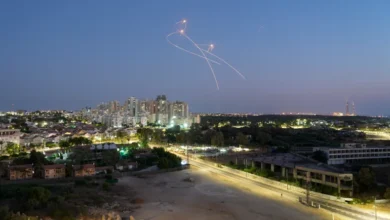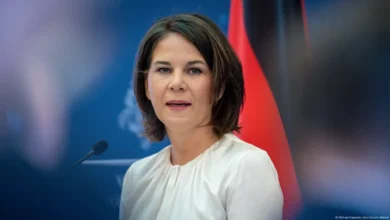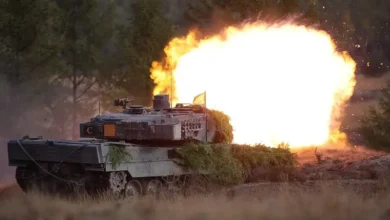As Venezuela’s election nears, opposition figures face Maduro’s repression
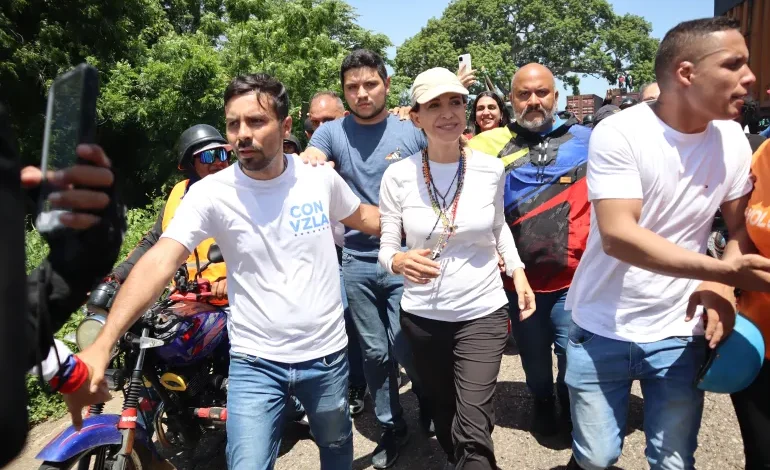
The journey from the Venezuelan capital of Caracas to the coastal city of Maracaibo should only take about nine hours. For Maria Corina Machado, however, it took closer to 12.
Machado, a popular opposition leader, had hit the road in the final days of Venezuela’s presidential race to campaign on behalf of Edmundo Gonzalez Urrutia, the candidate hoping to unseat President Nicolas Maduro.
But as she travelled between cities, Machado noticed government forces had blocked the roads. Gas stations were mysteriously closed along her route.
Machado has grown accustomed to such obstacles, though. As she explained at a news conference at her party headquarters in Maracaibo on July 24, she sees the obstructions as the last gasp of an authoritarian government struggling to maintain its grip on power.
“This is a confession from a regime that knows it is defeated,” Machado said, as she cited yet another example: efforts to deny accreditation to citizens wishing to act as poll monitors.
“But just like we have overcome all these obstacles, we’re also going to overcome this one.”
On Sunday, Venezuelans head to the polls to vote for the presidency. But Maduro, the socialist president who has been in power since 2013, has struggled in the polls, trailing Gonzalez by wide margins.
An opposition victory could bring nearly a quarter century of socialist rule to a close. Opposition leaders like Machado, however, warn that Maduro will not leave office without a fight.
Haunted by hurdles
Machado, however, is no stranger to Maduro’s tactics. The 56-year-old, a former member of Venezuela’s National Assembly, was once a frontrunner in the presidential race herself.
Last October, she swept the opposition primary with 92.5 percent of the vote. The Democratic Unitary Platform — the main opposition coalition — declared her its nominee for the presidency.
But Maduro’s allies in government sought to bar her from holding office, accusing her of having supported US sanctions, being involved in corruption and losing money for Venezuela’s foreign assets.
In January, Venezuela’s Supreme Court upheld the ban: Machado was effectively ousted from the race. She has been barred from air travel, too.
Machado has nevertheless sought to rally voters on behalf of her replacement, Gonzalez. One of her recent campaign events in Maracaibo, Venezuela’s second largest city, drew an estimated 200,000 spectators, according to Vente Venezuela, her political party.
But she remains a target, as does Gonzalez. Ahead of last Tuesday’s rally in Maracaibo, Venezuelan national police detained six people for arranging sound systems and transport for her team.
Their equipment was ultimately confiscated. Machado and her team had to make do without a sound system, sometimes yelling to be heard over the crowd. But her voice was largely swallowed up in the din.
Even members of her campaign have faced harassment. Since March, five of her staffers have sought refuge at the Argentinian embassy in Caracas to avoid arrest. They have been coordinating Machado’s campaign remotely from within the embassy walls.
Just last week, Machado’s security chief was also arbitrarily detained in what Machado described as “a kidnapping”. He was released the following day. In addition, her campaign vehicles were vandalised, and their brake hoses were cut.
Her team has grown accustomed to bringing hoses and jerrycans of fuel on the road whenever they travel, just in case the government forces gas stations along the route to close.
“It is not a typical campaign,” Oliver Lopez Cano, a campaign staffer, told Al Jazeera.
Still, Machado told Al Jazeera in a private conversation after the Maracaibo rally that she has received unexpected support as Maduro’s popularity tailspins.
For years, motorcycle groups known as “motorizados” used to prowl the streets, harassing members of the political opposition.
But Machado said some of the motorcyclists have switched sides, fed up with the economic and political instability under Maduro.
“All the motorcyclists used to be chavistas,” Machado explained, using a term that refers to followers of Hugo Chavez, Maduro’s predecessor and mentor.
She described how thousands of motorcyclists — mostly men — have helped protect her campaign as she navigates across the country.
Even at government roadblocks, security forces sometimes hesitated to obstruct her progress when they saw the motorcyclists she travels with, Machado said. “They went from being a threat to being a shield.”
Targeting the grassroots
But opposition leaders are not the only individuals facing government backlash.
Critics accuse the Maduro government of attacking low-level political workers and even small business owners for their association with the opposition.
In the three weeks since the start of the campaign season on July 4, the Venezuelan human rights organisation Foro Penal has documented 149 cases of politically motivated arbitrary detention.
One of those cases involved a man named Aldo Roso Vargas, an activist from Voluntad Popular, an opposition party.
He was arrested en route to an opposition campaign event in Caracas earlier this month, charged with attempting to destabilise the electrical system.
Gonzalo Himiob Santome, co-founder and vice president of Foro Penal, said examples like Roso’s are an illustration of how far the Maduro government is willing to go to stay in power.
“The government’s intention is to intimidate anyone who shows closeness to the opposition movement in one way or another,” Himiob said.
Even restaurant owners and chauffeurs who have served opposition figures have reportedly faced intimidation from the government and its allies.
That was the case for the Plaza Real Grill in San Cristobal, the capital of Venezuela’s Tachira state.
Cesar Perez Vivas, the brother of the grill’s owners, said that Venezuelan tax authorities preemptively shut down the restaurant on trumped-up charges of fiscal fraud, shortly before Machado and Gonzalez were expected to visit.
A former governor of the state, Perez believes it is his association with the opposition that led to his siblings being targeted. He is a staunch supporter of Machado and has himself been barred from running again for public office.
